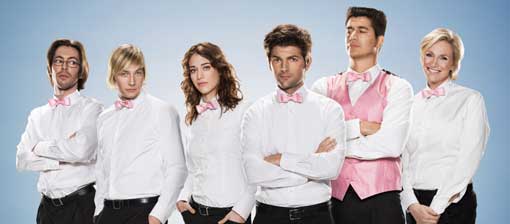
Let somebody else pick the year's Top 10 best shows or worst shows. I'm going with 10 shows that ended in 2010 while deserving to run much longer.
These series were so entertaining, so distinctive, so informative or such archetypes that their premature loss diminishes the medium of television itself.
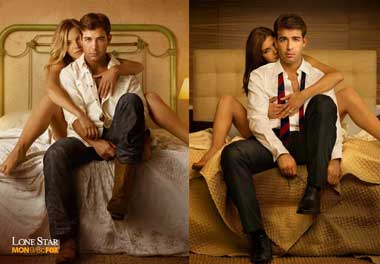
Lone Star (Fox) -- Let's start with a couple of network series before moving to even more agonizing losses on cable. This ambitiously designed Fox drama about a great Texas guy who just happened to be a con man marrying two women in different lives in different cities was probably doomed from the start. Though it debuted as the fall favorite on nearly every critic's list, perhaps we also should have noticed that: A) It didn't have a known/bankable star (James Wolk?); B) It wasn't a high-concept plot explainable in a sentence (the one above doesn't cover the half of it); C) Said plot was played with extreme realism (anybody interested in that anymore?); D) Its lead character could seem, well, amoral (though he was thick in a moral crisis over his "job"); E) Its supporting characters were either emotionally chilly or downright dastardly; F) Viewers are reluctant to invest in serial sagas that aren't immediate epic grabbers (Lost, 24); and G) Lone Star was a provocative show that asked viewers to think and feel about tough life choices without the distancing remove of a period setting (Mad Men) or extreme not-like-us characters (Dexter). Critics like me just willed ourselves to believe that network TV could still support restrained, well-made adult drama. And maybe it can -- on CBS, featuring a beloved star (i.e., The Good Wife with Julianna Margulies).
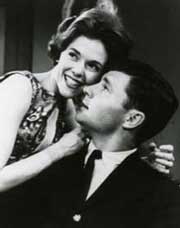
As the World Turns (CBS) -- It hurts to see the end of a 54-year run, when a show is still near the top of its game, when it's one of the few remaining exponents of a rich yet fading genre, and when it represents so much TV history -- even our own family history. Generation after generation of daytime devotees watched Lisa cause trouble in Oakdale for the Hughes family, along with other memorable characters in TV's first soap to stretch itself to (gosh!) a full half-hour. Those of us who love the genre, despite its sometimes creaky conventions and conflicting convictions, feel the loss of any soap acutely because we know it will never be replaced. Daytime drama is at a crucial moment, in desperate need of reconfiguring to survive in shifting landscapes of media, finance and gender/lifestyle roles. When a half-century of quality counts for nothing -- heck, Guiding Light died in 2009 with 72 years behind it (57 on TV, 15 on radio) -- and when decades of viewer devotion mean even less, how can TV channels ask us to remain "loyal" to their offerings?
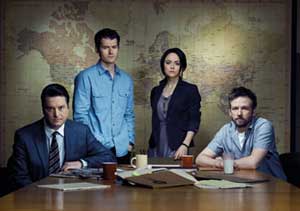
Rubicon (AMC) -- This smart espionage saga was too quiet for its own good, too intricate, and too -- well, original. More and more, the most creative minds and concepts find themselves uninvited by a medium seemingly turning ever more to familiar franchises/stars/plots that can grab viewers' attention the very first week. Giving something time to become familiar seems out of the question. Yes, TV today is more commercially competitive than ever, far removed from the days when three fat-and-happy networks had enough economic cushion to be patient with innovations like All in the Family, Hill Street Blues, Cheers and Twin Peaks. But there simply has to be some place, some way, to continue incubating fresh ideas and approaches if the medium hopes to survive in anything approaching its current configuration.
Terriers (FX) -- Ditto this intimate drama-comedy of two offbeat slackers playing private eyes in water much too deep for them to navigate. Scruffy guys like Donal Logue and Michael Raymond-James probably aren't series leads in any other channel's TV universe -- but that's why we tune to FX. Reasons bandied about for the show's low ratings include a confusing title and vague promotion. So, another no-high-concept victim? Terriers was a show that couldn't help growing on you, though, so maybe its shaggy dog title was apt in the end. But this is indeed the end.
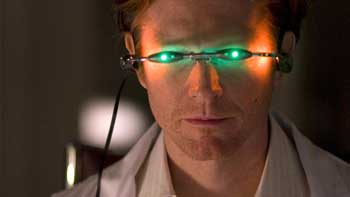
Caprica (Syfy) -- Even a Battlestar Galactica addict like me has to admit this sort-of-prequel had problems. Its overall tone was much too frosty, and the characters were difficult to warm to, too. Even its dour look felt alienating, though it was supposed to be more in line with our "real" world than its longer-running space-set progenitor. Maybe spending half its time in a computerized "virtual" world was guaranteed to cause confusion. But damn, its study of high technology's potential to create a seductive "cyber" universe that could merge into flesh-and-blood life was a breathtaking attempt at something truly profound. Maybe trying tweaks on casting and storylines could have made it more relatable to more viewers. Syfy needs to keep a corner open for smart stuff as it dumbs down more new shows to banter-and-bang-bang escapism. (Syfy burns off the five final episodes of Caprica Tuesday, Jan. 4 from 6 to 11 p.m. ET.)
Party Down (Starz; photo at top) -- How could a show this convulsively funny, character quirky and culture-quick not find a niche? Well, it could air on Starz, the No. 3 premium cabler, which has decided to go "cinematic" with epics like Spartacus and the upcoming Camelot. (This also tells us plenty about the problem with today's "cinematic" movies, but I digress.) The minds behind Veronica Mars absolutely nailed life among drifting young adults and showbiz wannabes as they chronicled the weekly on-site gigs of a second-rate Hollywood catering company. They also nailed the casting of their cater-waiters, as evidenced by bigger networks quickly picking off their thrifty project's stars: Jane Lynch to Fox' Glee and Adam Scott to NBC's Parks and Recreation, for starters. But Party Down remains the little show that could -- and could still, if somebody else picked up its sharp (and young-skewing) format.
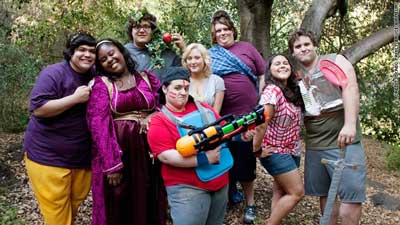
Huge (ABC Family) -- I just don't want to believe that today's young viewers will only watch pretty, cool people. (As an accepted "truism," it could also explain the giddy state of CNN and nearly every other channel. But I digress.) This summer drama about teens at a weight-loss camp had the unflinching kind of emotional honesty that only comes when a show truly understands the agony of feeling utterly misfit. Co-creator Winnie Holzman previously captured that condition in My So-Called Life, whose life on ABC was also cut short by less-than-ample ratings. You'd think that cable, long touted as the place for niche viewers to flock, would be able to find a place for sensitive shows like this amid all the higher-rated glitz and glam. But apparently you'd think wrong. Bring on more Pretty Little Liars!
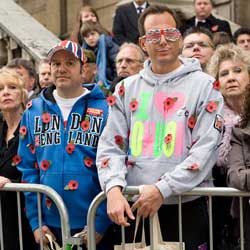
The Increasingly Poor Decisions of Todd Margaret (IFC) -- This short-run half-hour was just plain weird. But mesmerizingly weird -- a train wreck of personality disorder and opaque obliviousness. Writer/star David Cross's cheery forging forward as the utterly clueless American-nitwit-in-London marketing a probably toxic energy drink is an achievement that simply begs for more. At least for the few of us fascinated by its sheer audaciousness.
Moguls & Movie Stars (TCM) -- Maybe not this miniseries, exactly, but this kind of multi-part film history needs to be presented more by Turner Classic Movies, perhaps in place of the latest Edna May Oliver marathon. Of course those old Oliver flicks are just sitting there in the company's paid-for film library. Producing fresh analysis of the channel's lifeblood takes bucks, effort and brains. But it's worth it, illuminating that library's lesser-known treasures for new generations of budding film buffs, while delivering deeper perspective for those of us already hooked on Hollywood history. Even some program acquisitions could do the trick. How about unearthing Kevin Brownlow's essential 1980 chronicle of silent filmmakers creating cinema's structure and showbiz glitter -- that 13-part masterpiece of oral history called Hollywood?
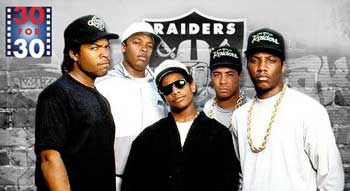
30 for 30 (ESPN) -- All 30 films have unreeled now, and the first 15 are out in an extras-packed DVD set. But there's no reason this 30th anniversary documentary series -- exploring fascinating sports/society stories from ESPN's era of existence -- couldn't go on in some form. It's not as if there aren't hundreds more meaty tales of sports/society intersections to lure top directors like Peter Berg, Barry Levinson, Barbara Kopple, Ron Shelton, Reggie Rock Bythewood, Spike Jonze and John Singleton. The docuseries' individual attitudes, intimate insights and broader perspectives provide necessary counterpoint to every dopey suck-up in which ESPN engages. (I didn't need LeBron James' The Decision as evidence. I'm still holding a grudge over the ax put to 2003's bold football drama Playmakers.)